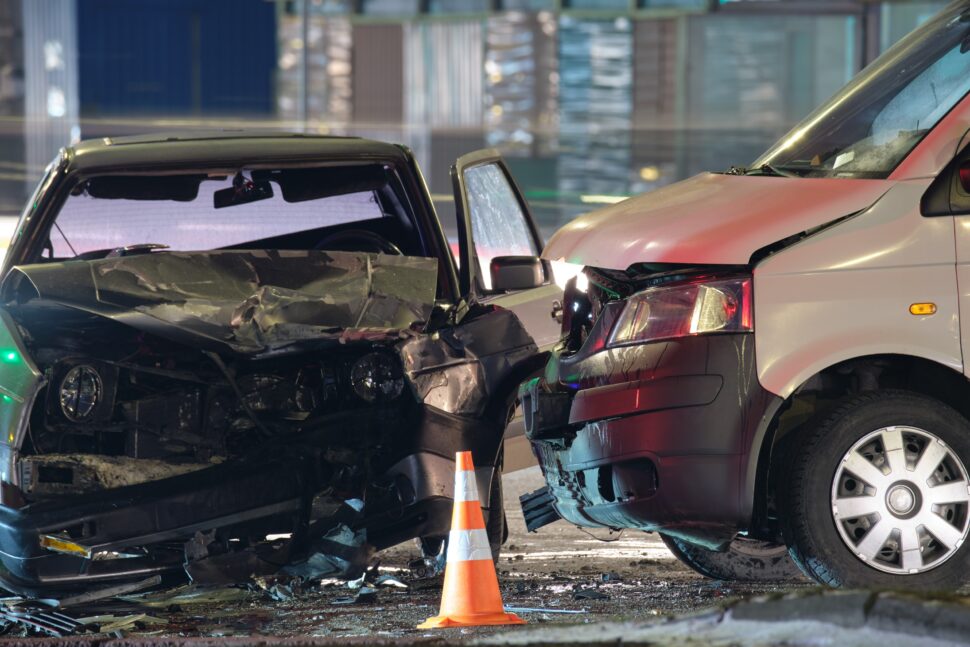Witnessing a car accident is a traumatic experience that can leave you feeling shaken and overwhelmed. You may not know what to do in the moment, but it’s important to remember that there are steps you can take to help those involved and keep yourself safe. In this post, we will discuss steps to take to help ensure a safer resolution to the situation.
Assess the Situation
When you witness a car accident, the first thing you should do is assess the situation. Try to remain calm and take a few deep breaths to help clear your mind. Look around and check if anyone is injured or unconscious. If you can safely approach the scene, check with the drivers and passengers if they need immediate medical assistance.
It’s important to approach the scene safely, as you don’t want to put yourself in harm’s way. Make sure there are no other vehicles approaching and that you can safely cross the road. Once you’ve reached the accident site, try to stay on the sidewalk or off to the side of the road so you’re not obstructing traffic.
Call for Help
Once you have assessed the situation and established whether there is anyone injured, call for help immediately. Contact the emergency services, including the police, ambulance, and the fire service. Make sure you provide clear and concise information about the location and nature of the accident.
If you have never called for an emergency before, it’s important to remain calm and speak clearly when providing information to the dispatcher. Start by stating your location and then describe the situation in detail. If you are not sure about any details, such as the exact location or the number of people involved, it’s okay to say so.
The dispatcher will guide you through the process and ask for any additional information they may need. Remember to stay on the line until the dispatcher tells you it’s okay to hang up, as they may have important instructions or updates for you. Don’t hesitate to ask for help if you’re unsure of what to do next.
Gather Information
While you wait for the authorities to arrive, it is important to gather information about the accident. Take photos of the scene, recording details like the damage to the vehicles, the location of the accident, and any other relevant factors. Collect the names, phone numbers, and insurance information of the drivers, passengers, and witnesses involved in the accident.
You can also take note of any weather or road conditions that may have contributed to the accident, as well as any other important details you observe. This information will be helpful for insurance purposes and may also assist in determining who is at fault for the accident.
Provide Assistance
While you wait for the authorities to arrive, provide assistance to those involved in the accident. If anyone is injured, stay with them and provide first-aid or any other assistance that you can. Do not move an injured person unless it is absolutely necessary. Be respectful and offer support to those involved in the accident.
As a bystander, it’s important to know basic first-aid rules of thumb to help those involved in the accident. Remember to always call for professional medical help instead of attempting to provide extensive first-aid treatment yourself. For less-vital injuries, be sure to apply pressure to any bleeding wounds and try to keep the person calm until help arrives. If someone is unable to breathe, perform CPR if you have been trained in it or follow the instructions of the emergency dispatcher. Remember to never provide first-aid treatment beyond your level of training and always prioritize your own safety.
Stay Calm
Witnessing a car accident can be an emotional experience, but it is important to remain calm and composed. Don’t speculate or jump to conclusions about what happened, and don’t get involved in heated discussions or arguments with drivers or witnesses. Offer your assistance and cooperation to the authorities when they arrive.
One helpful tip to stay calm in a stressful situation like witnessing a car accident is to focus on your breathing. Taking deep breaths can help you relax and clear your mind so you can better assess the situation. Additionally, try to remind yourself that panicking or getting upset will not be beneficial to anyone involved. It’s also important to acknowledge and accept your emotions, but try not to let them overwhelm you. Remember that staying calm and collected can help ensure a better outcome for everyone involved. So, take a deep breath, stay in the present moment, and keep your emotions in check as best as you can.
Follow Up
After the accident has been resolved and everyone involved is safe, it’s important to follow up on any necessary steps. This can include staying in touch with the authorities, insurance companies, or a car accident lawyer to provide any additional information or support that may be needed. It’s also a good idea to check in with those involved in the accident to see if they need any further assistance or support.
Additionally, it may be helpful to monitor your own well-being and seek support or counseling if needed to process any emotions or trauma from witnessing the accident. Remember that taking care of yourself is just as important as helping others during a difficult situation.
Witnessing a car accident is a challenging experience, but it’s important that you take the necessary steps to help those involved. Assess the situation, call for help, gather information, provide assistance, and stay calm. By following these steps, you can help to ensure the safety of everyone involved and contribute to a smooth and efficient response from the emergency services. Remember that even though the accident is over, it can continue to have a significant impact. Offer your support, compassion, and understanding to help those affected by the accident as they continue to recover from this traumatic event.
